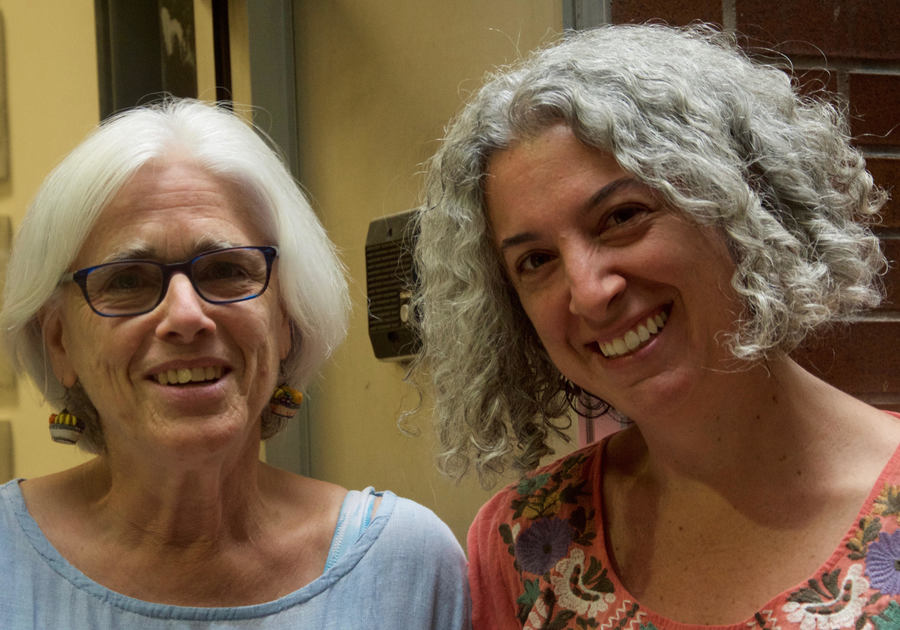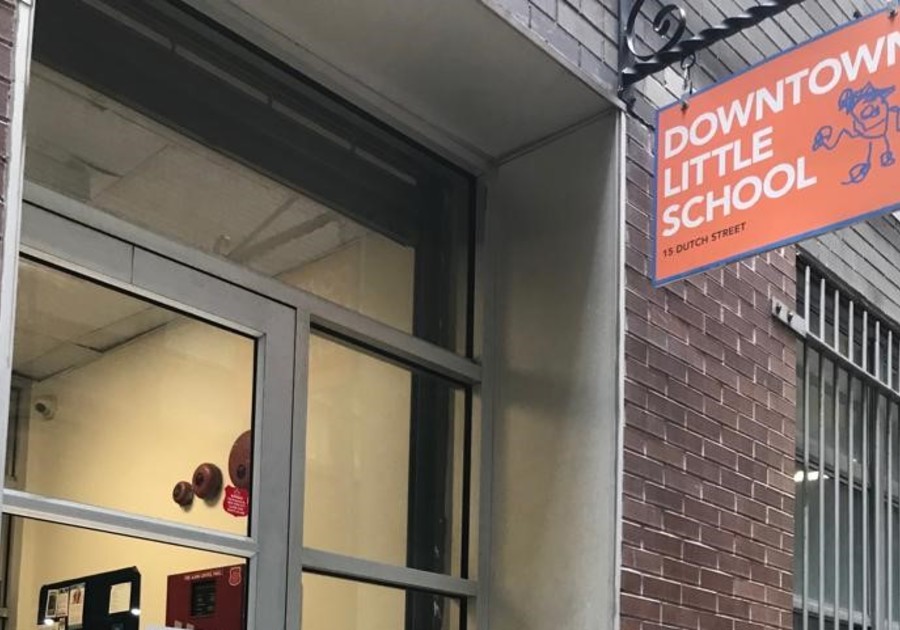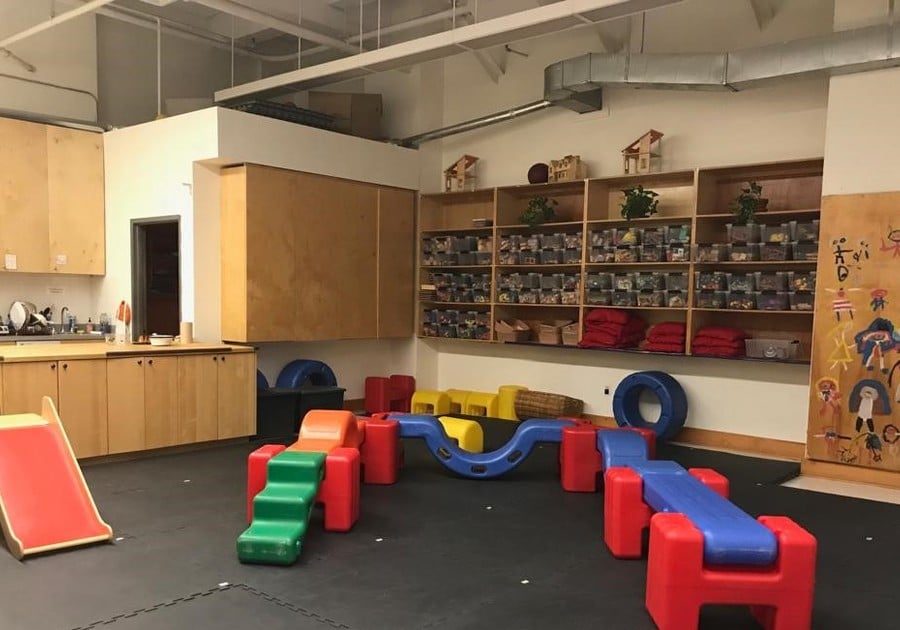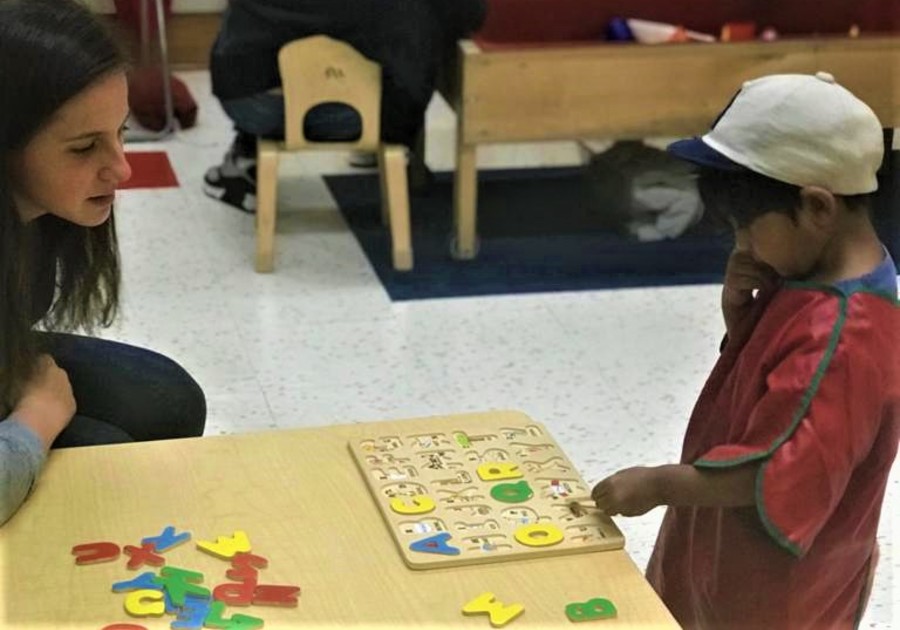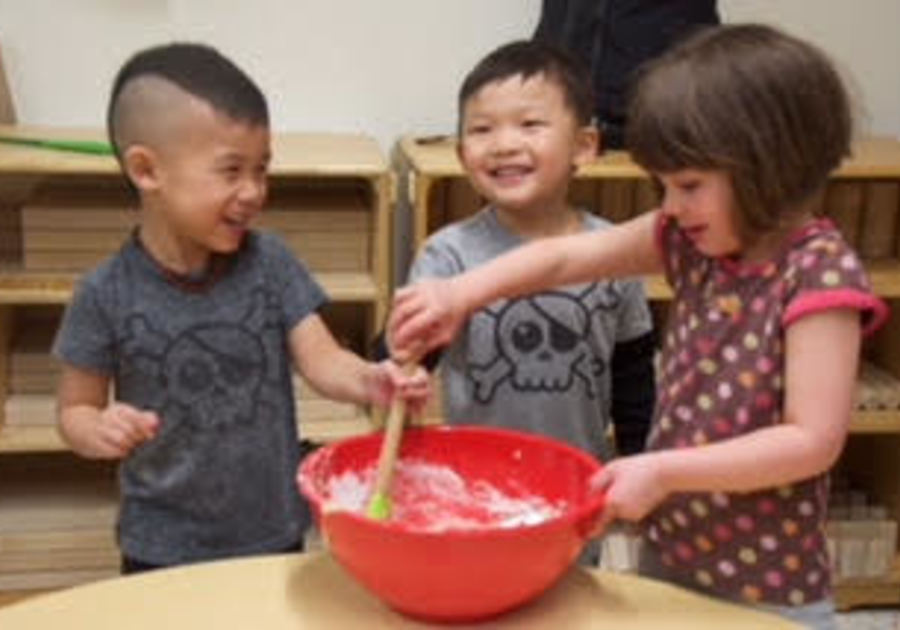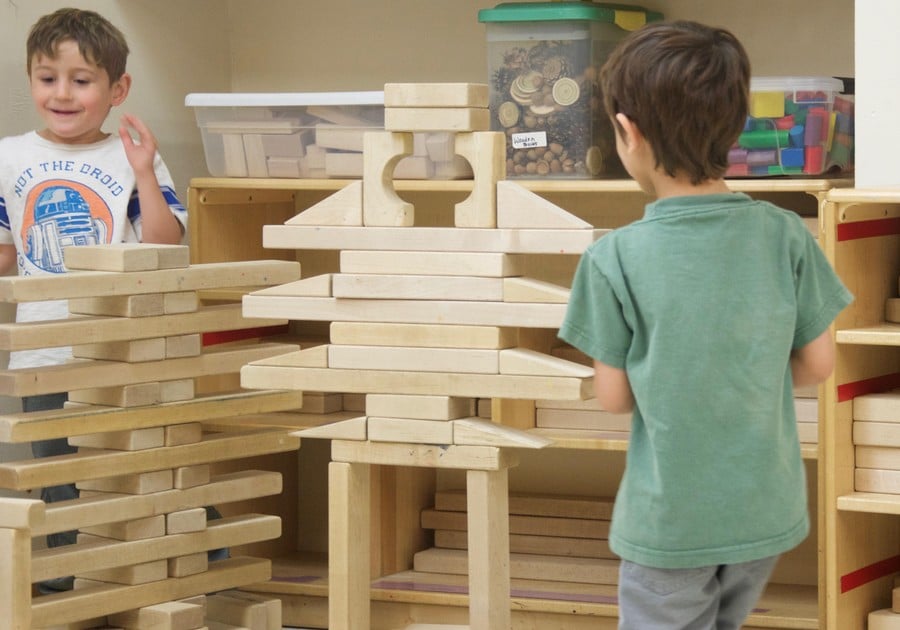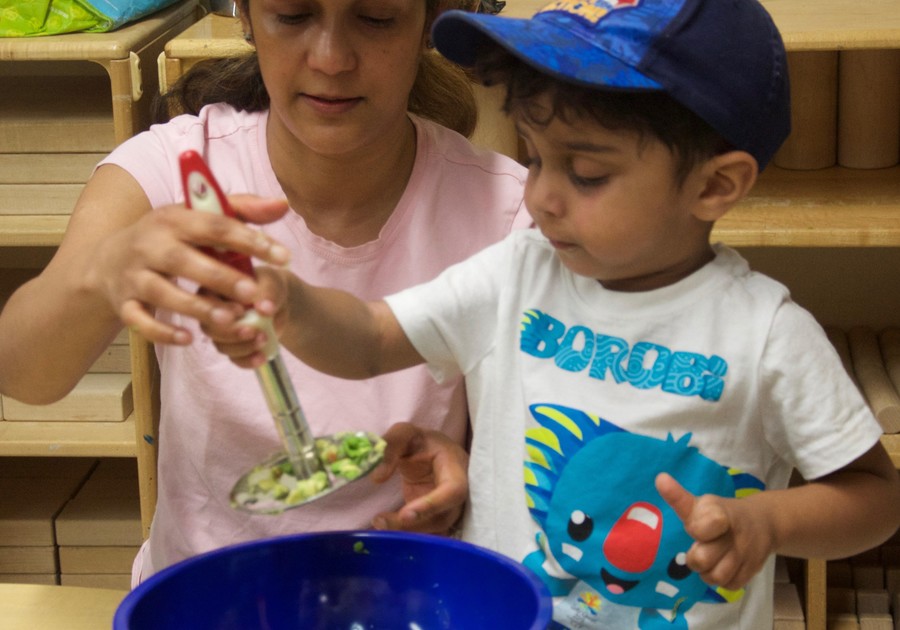Please tell us a little about yourselves, your backgrounds and what led you’ll into educational leadership.
I’m Meredith Gary. I first became interested in teaching when I took a semester off from my studies at Wesleyan University to do an intensive program in urban education at Bank Street College here in New York. After I graduated from Wesleyan, I returned to New York and enrolled in Bank Street’s graduate program in education.
In 1995, I interviewed for a teaching position at Pace University’s laboratory preschool, Pace Little School where the director was Kate Delacorte. On my way to the interview, I got pickpocketed on the subway! The first thing I asked Kate was whether she might be able to give me a subway token so that I could get home. That was the start of our 23-year working relationship.
In 1999, when Pace closed Pace Little School, Kate opened the Downtown Little School on Dutch Street. At the same time, I founded the Williamsburg Neighborhood Nursery School, a program based on the Little School model and serving the growing population of Williamsburg families. I worked there as a Teacher-Director until 2004. WNNS is still thriving, heading into its 20th year!
I rejoined Kate at Downtown Little School in 2005, first as a 3s teacher and then as Co-Director.
I’m Kate Delacorte. I started working with children in high school, volunteering at a headstart and various other programs for young children. After college, I decided to see what Bank Street College of Education was like. I found the children’s literature class so compelling that I applied to Bank Street and I’ve been working with children ever since, first as a teacher, then a teacher/director and now as co-director of DLS.
How would you describe your leadership style?
I would describe my and Kate’s leadership style as participatory. We spend a lot of time in the classrooms - knowing the children and classroom routines well, makes us better able to support the teachers. When a teacher is out sick, more often than not we are the substitutes! Spending a day in a classroom as a teacher offers us a helpful inside perspective. As school leaders, we also seek a balance between a strong point of view and adaptability to individual needs. It is important for the school to have a clear and consistent culture - that’s what makes us special - but it’s also important for all to recognize that no child, family, or classroom group is exactly the same. We have to be prepared to adapt our practice to meet the needs of every child. This is something we work hard to model and to support in our teachers.
What is Downtown Little School’s philosophy? Teaching style? How do you encourage that kind of culture?
Downtown Little School is a progressive school. Teachers and directors share a belief in the importance of play or, in Dewey’s words, learning by doing. We also share an interest in and respect for individual children and their families that allows us to adapt our program to a wide range of children. It is that shared attitude toward young children that shapes the teaching style at the school and promotes a strong school culture.
What advice would you give to a new teacher in his or her first year?
I think no new teacher should be dropped into the classroom without a strong system of support from directors and experienced colleagues. So my advice would be: when you are interviewing for jobs ask, “What kind of support will I have here for my own professional development?” At Downtown Little School, we actively seek out teachers who are eager to grow, whether they are in their first teaching year or their tenth!
Do you’ll have a separation process for kids entering school?
Our separation process begins before school opens with a letter from the teachers to each child and a home visit for children new to the school or a short visit to the classroom for returning students. Once school begins, we ask that a parent or another close adult stays at school as small groups of children are introduced to the classroom for a shortened school day. As we increase the number of children and the length of the school morning, adults move out of the classroom and then out of the building! The separation experience is about building trust between children and teachers and between parents and teachers. It is about reinforcing the trust between the children and their parents.
What strategies do you use to manage children with special educational needs?
When a child has special needs, teachers must observe and think carefully about how to support each individual child, something we do with all children. Unique adaptations might be needed, e.g. a footrest to help a child sit more comfortably, an individualized schedule to help a child feel more organized during the day, or a rug-spot next to a teacher to help a child during group times. When children need the support of speech and language therapists, occupational or physical therapists, or special education teachers we expect to work with those other adults as a team. Our overarching goals for all the children are the same, but the methods we need to use to get them there may differ from child to child.
What steps would you take if you are dealing with a student discipline incident?
Good discipline is about helping children learn self-discipline. Even room arrangement helps build the structure and clarity that children need in order to do so. Then, teachers must communicate clear expectations. One way they do that is by having dependable and predictable routines. Even with the best structure in place, children will test limits. If a child throws sand, a teacher will ask the child to leave the sandbox. If children are fighting over a toy, the teacher might provide another of the same toy or give the children a clear way to take turns. Discipline does not have to be punitive; it is instead a way of providing children resources for solving their problems independently.
How do you recruit and maintain quality teachers and staff members?
We put as much of our financial resources as we can toward our teaching staff in the form of salaries and benefits, and we create a work environment that teachers want to come back to. We like supporting young teachers, and many of our student teachers and interns have gone on to be assistant and then headteachers at the school.
What are some of your family favorite events that you host? Do you host any that are open to the public?
We host three events each year for our families. The first is the beginning of the year potluck. It is an opportunity for families, new and returning, to meet each other and share a meal and it is also a chance to ask questions about the separation experience. DLS staff and experienced parents are on hand to calm parents’ worries and offer practical advice. Next, we have a curriculum night when teachers in each classroom give a slideshow and talk about their plans for the year. Finally, we have a spring benefit every year that draws present and future families as well as some parents of graduates and sometimes the graduates themselves!
Please tell us what makes your school unique from others in the area?
We hear Downtown Little School referred to as a “hidden gem,” but that’s because we are so tucked away on Dutch Street that you may not even know we are here! Our location has many perks, including huge high-ceiling classrooms, an indoor playspace and circulating library, and a private rooftop playground and garden. But I think what makes us unique is our many-year history of working downtown and the sense of community that the school has developed over that time.
Strong leaders are constantly learning. What is a great book or resource that has helped you grow and that you would recommend to others?
Over the years, I’ve read many books about education that have helped inform my philosophy of education. My first inspiration came from John Dewey. Now, I am more likely to return to the books of Vivian Paley. Her books are about classrooms in action and feature snapshots of children’s play, storytelling and conversation. They successfully evoke the excitement all teachers feel when children learn from open-ended materials, from each other and from their teachers.
Thank you!
Related articles:
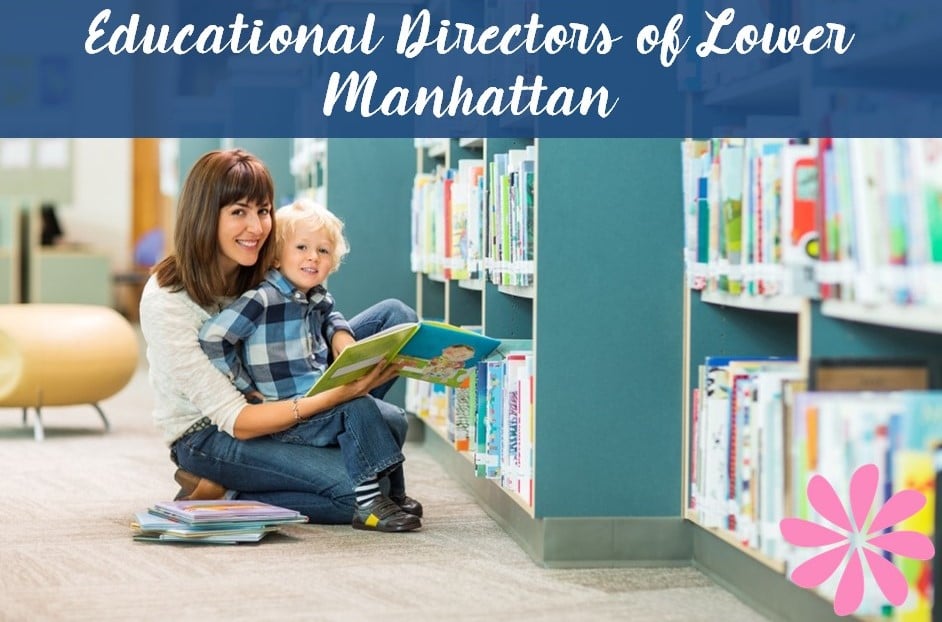 |  |  |
Macaroni KID Lower Manhattan is the family fun go-to source for the latest and most comprehensive information in our area. Subscribe for FREE today.

